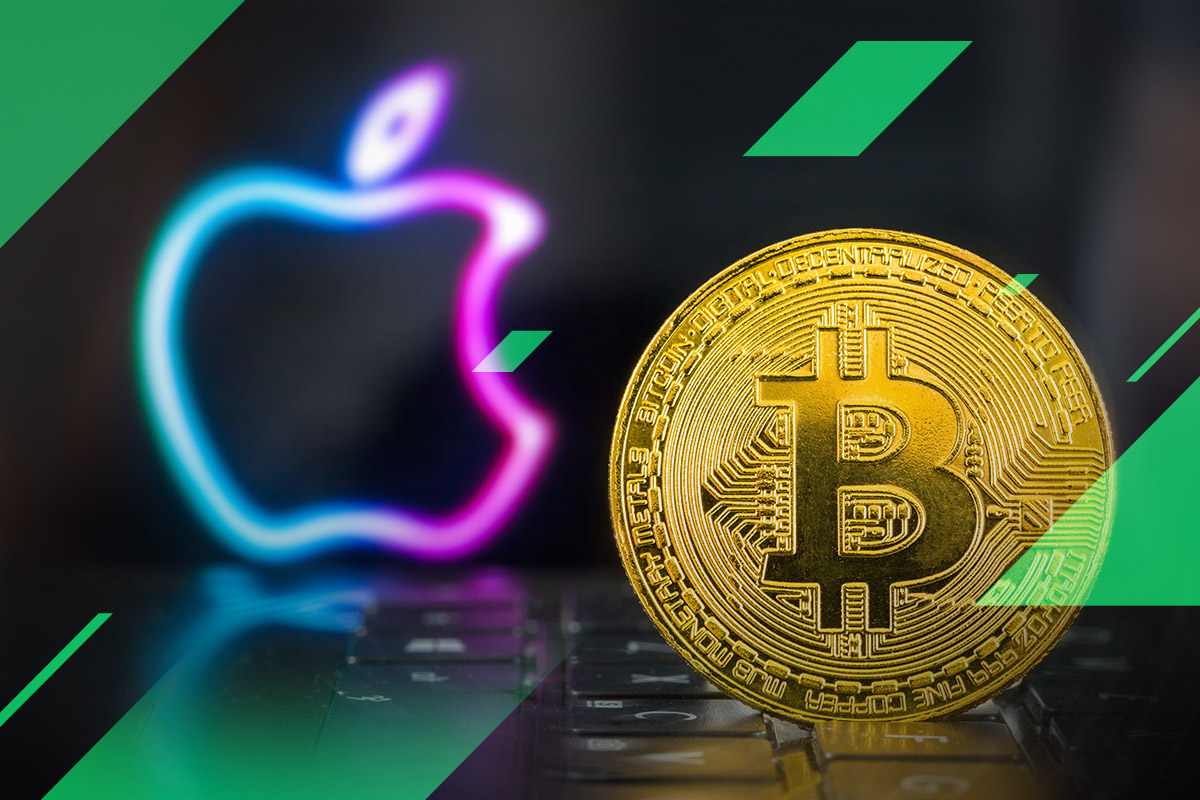On May 5, 2025, Apple softens crypto stance, updating its App Store guidelines in the U.S. to allow iOS apps to include external links to NFT marketplaces and cryptocurrency platforms. Driven by a 2023 federal court ruling, this shift enables developers to bypass Apple’s 30% in-app purchase fee, fostering Web3 integration. With Donald Trump’s pro-crypto policies fueling a $3.2 trillion crypto market, Apple softens crypto stance to drive blockchain innovation. This article explores how Apple eases crypto policies, their impact on developers, and opportunities for investors.
Why Apple Softens Crypto Stance

Apple adjusts iOS app rules in response to a 2023 court ruling mandating external payment links in iOS apps, reducing reliance on Apple’s in-app purchase system. Previously, Apple’s strict policies imposed a 30% fee on NFT and crypto transactions, limiting developer profitability. The updated guidelines, effective May 2025, allow iOS apps to direct users to NFT marketplaces like OpenSea, enabling direct sales without Apple’s commission.
Trump’s Bitcoin Strategic Reserve and relaxed SEC regulations have accelerated crypto adoption, with Bitcoin trading at $90,000 and stablecoin volume at $234 billion. Apple relaxes crypto rules to align with these trends, complementing initiatives like MetaMask’s Mastercard debit card and Stripe’s stablecoin program. Industry discussions highlight enthusiasm, with developers eager to expand Web3 app offerings.
Details of Apple’s Policy Update
Apple softens crypto stance by revising App Store rules to permit iOS apps to link to external NFT marketplaces and crypto exchanges, provided they comply with local regulations. Developers can now guide users to platforms like Blur or Tensor for NFT trading, bypassing Apple’s in-app payment system. Licensed crypto exchanges can process transactions within apps, supporting assets like Bitcoin, ETH, and USDC.
At the same time, Apple continues to enforce strict restrictions on cryptocurrencies, such as:
- Prohibiting apps from offering crypto rewards for completing tasks.
- Banning the organization or promotion of ICOs (Initial Coin Offerings).
- Disallowing crypto mining on iOS devices.
The policy reverses Apple’s 2022 restrictions, which confined NFT apps to in-app purchases, criticized for high fees compared to OpenSea’s 2.5% commission. With over 1,000 Web3 apps on iOS expected to adopt external links by Q3 2025, Solana’s Tensor and Ethereum’s Blur are set to benefit, as NFT trading volume reached $1.7 billion in April 2025.
Implications for the Crypto Market
Apple softens crypto stance, signaling broader blockchain adoption. With 2.2 billion iOS devices worldwide, Apple eases crypto policies to onboard millions to Web3, boosting demand for NFTs and crypto assets. Solana memecoins like BONK, up 60%, and Ethereum’s DeFi platforms may see increased activity. Trump’s U.S. crypto hub initiative aligns with global trends, including Japan’s Web3 efforts and Russia’s elite crypto exchange.
Regulatory risks, such as the EU’s MiCA framework and U.S. stablecoin laws, could impose compliance costs, as seen with Tether’s XAUT. Security concerns, like ZKsync’s $5 million hack, highlight blockchain vulnerabilities. Yet, Apple relaxes crypto rules to foster innovation, driving Web3 growth.
Opportunities for Developers and Investors
Apple makes way for NFTs and Crypto with iOS policy shift, unlocking opportunities for developers and investors. Developers can build iOS apps integrating NFT marketplaces and DeFi protocols, leveraging Solana’s low-cost transactions or Polygon’s scalability. Investors can explore altcoins like SOL or MATIC, with Solana’s market cap at $100 billion. Web3 wallets like MetaMask and Phantom may see increased adoption, driven by iOS accessibility.
Tether’s XAUT and GameFi projects on Solana offer diversified investment options. Institutional confidence, evidenced by VanEck’s ETF filings, supports long-term growth as Apple eases crypto policies.
Challenges Facing Apple’s Crypto Shift

Despite Apple softens crypto stance, challenges persist. Regulatory scrutiny, with SEC investigations into crypto platforms, could complicate app approvals. Competition from Android, with fewer restrictions, may attract Web3 developers. User education is critical, as iOS users new to NFTs or crypto wallets face a learning curve.
Security risks, including phishing attacks on Web3 apps, require robust protections. Maintaining user trust and regulatory compliance is vital as Apple relaxes crypto rules.
Looking Ahead for Apple Softens Crypto Stance
As Apple softens crypto stance, iOS emerges as a key platform for Web3 adoption in 2025. Developers should integrate NFT and DeFi features, while investors monitor on-chain metrics. With global crypto adoption surging, Apple eases crypto policies to drive blockchain innovation, transforming the digital economy.

